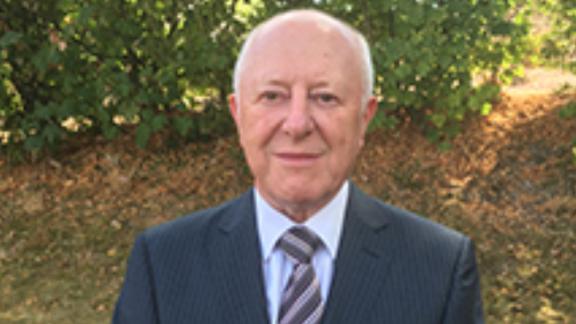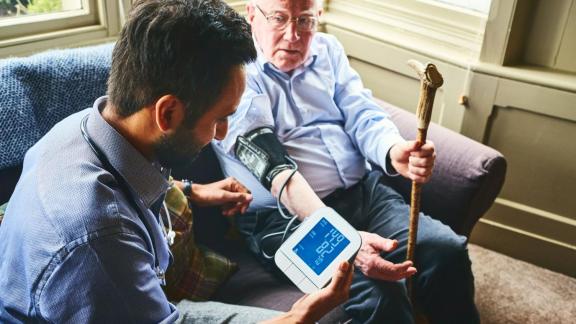NHS Reset: It's time for leaders to lead

NHS Reset is an NHS Confederation campaign to help shape what the health and care system should look like in the aftermath of the pandemic. In this blog, the chair of Nottingham CityCare Partnership, Michael Williams, reflects on the lessons of recent months and calls on leaders to make the changes that will bring about a more integrated approach to health and social care.
Nottingham CityCare Partnership, a not for profit social enterprise, is the community health services provider in Nottingham and has been part of a successful cross-sector response to COVID-19 in the city, involving a range of statutory, third sector and voluntary organisations. Indeed, social enterprise has had a crucial role. Nottingham CityCare, NEMS, the out-of-hours provider, and Derby Health United, provider of 111 services, have all played their part in a system-wide partnership.
As we move to recovery and preparing for winter pressures, now is a good time to reflect on what we have learned during the past few tumultuous months.
New levels of cooperation and trust
Firstly, the NHS cannot do it on its own. It has taken the combined efforts of many agencies to tackle COVID-19, and facing a common threat has forced a new level of cooperation and trust. It has also exposed, both nationally and locally, the key importance of a more integrated approach to health and social care. It has demonstrated that if the need is great and if risk is properly managed, adopting innovation and new technologies can take place with pace. At CityCare, for example, we enhanced our services to care homes to provide training, bespoke advice and bereavement support; assisted more safe discharge from acute hospitals, and adopted new ways of working. CityCare also focused on the needs of some of the most vulnerable homeless and rough sleepers, working with Framework to secure beds, food packages and physical and mental health support. More patients have been successfully treated in community settings and acute hospitals have been focusing on what they do best. We should avoid the danger of sliding back into old ways of thinking and working.
The importance of local knowledge
Secondly, the importance of local knowledge and determinism to be able to respond to local need has been key. This can work within a national framework of accountabilities, but it would be a retrograde step to return to command and control from the centre. We are at a crucial point where integrated care systems and partnerships need to seize the opportunities to bring about real change and focus on population health management. A new local partnership needs to be forged between NHS providers, local government and the community voluntary sector. Diversity in all its aspects needs to be embraced and the concept that ‘biggest is best’ challenged.
Visible leadership
Thirdly, at an organisational level, Nottingham CityCare has benefitted from visible leadership in supporting our frontline workers and really good communication. This has been face to face using virtual platforms, and almost daily COVID-19 updates to our staff. This has enabled quick communication of issues around PPE, wellbeing initiatives, and safe working methods for at-risk staff. This has been appreciated by our workforce and its importance cannot be overstated. Technology has also enabled new approaches to education and training, patient consultation and supporting self-care.
In conclusion, we really need, on a wave of public support for health and social care, to make the changes that are so evidently needed. We owe this to all the frontline workers who have worked through this crisis and the patients who rely on our services. It is time for leaders to lead.
Michael Williams is chair of the Nottingham CityCare Partnership. You can follow the organisation on Twitter @ncitycare


